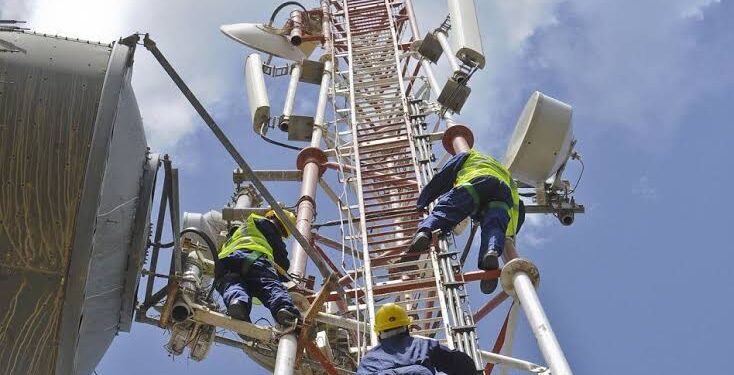The news:
The Nigeria Communications Commission (NCC) has extended the deadline of Mafab Communications‘ fifth generation (5G) rollout to 2023.
Already, the proposed launch was to be on August 24th, but delays in receiving its licences including the Unified Access Service Licence (USAL) and a Numbering plan, held it back. The telecom company stated it was already operating under the licences of Interconnect Exchange, International Data Access and Value Added services.
Mafab won its 5G spectrum licence in 2021 alongside MTN to offer services across the nation. Today, however, Mafab will focus on getting the complete licenses as it prepares to become operational. The telecom company will join other telecoms like MTN, Glo and Airtel in competing for the subscription of Nigerians.
The Chairman of Mafab Communication Limited, Mushabu Bashir said, “We are fully committed to bringing the benefits of 5G services to Nigerians and deploying a network that will drive economic development with increased broadband capabilities Nationwide.”
Why it matters:
The 5G offers the advantages of substantial network improvements, including higher connection speed, mobility and capacity, as well as low-latency capabilities. This will go by a long stretch to improve internet speed of 13.45 Mbps in Nigeria.
Poor internet connectivity is the major challenge businesses face, second only to lack of electricity. Mafab’s chairman is confident that the company “will help deliver improvements in the fields of education, business, smart cities and entertainment.”
Mafab will join the grab for subscribers:
A 2021 end of year report shows the volatile nature of consumers in switching from one service provider to another with more migrations and fewer new subscriptions. The NCC report stated that 86,978 subscribers switched networks in 2018; 139,022 in 2019; and 182,958 in 2020.
This means that subscribers are always constantly drifting towards better service providers. Mafab will now join the existing telecoms in the scramble for more subscribers.
Hindrances to the growth of telecoms:
Over the years, telecoms have been crippled by lack of adequate power supply, destruction of telecom facilities during road construction, vandalism, low consumer purchasing power and loss of global investors. In March, the Kogi state government sealed the facilities of Glo and Airtel over an alleged $855,393 tax evasion. In 2019, MTN shut down its offices and service centres across Nigeria over retaliation to xenephobic attacks in South Africa.
Starting as a telecoms provider is no easy venture:
Telecom companies operate on heavy capital. The cost of acquiring government licences alone could topple over hundreds of millions. Mafab which was incorporated on July 8th, 2020 has already remitted $273.6 million for the 5G spectrum licence. And the global turndown of funding and investments is not welcome news.
A sizable check is also required to purchase infrastructure, rent or build facilities for a company of this size.
Mafab will in the days to come be required to brace up for the massive capital required to operate a telecom company and buy spectrum. For instance, the spectrum fee in Lagos for one year is $7,137 as at the last updated NCC pricing.

































